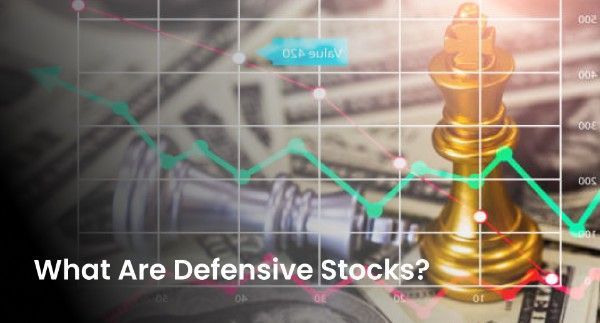Difference Between Shareholders and Debenture Holders

Explore the key differences between shareholders and debenture holders. Understand the nature of shares and debentures, their rights, returns, and priorities with Research 360.
Both shareholders and debenture holders are important stakeholders in any company that has issued these financial instruments. However, inexperienced investors who are not aware of the different types of securities issued by companies may be confused between these two terms. Who is a shareholder and who is a debenture holder? And what is the difference between the two?
In this article, we explore the answers to these questions and delve into how shareholders and debenture holders differ from one another. To better understand these two stakeholder categories, let us begin by discussing the financial instruments they hold.
What are Shares?
Shares are financial assets that each represent a portion of a company’s capital. Each share is a sign of ownership in the company that issued it. In other words, it represents a ‘share’ in the company’s ownership. Companies issue shares to raise capital for financing their operations and expansion plans.
The category includes different types of shares based on the rights they offer the holders and their priority for claims on the company’s assets in the event of liquidation.
The two main types of shares include:
Equity Shares
Equity shares carry voting rights and give the holder the right to vote on important company-related matters in the entity’s general meetings. Holders of equity shares may also receive dividends at the rate declared by the company.
Preference Shares
Preference shares do not carry any voting rights. However, in the event of a company’s liquidation, investors with preference shares have a higher priority in receiving any capital repayments.
What are Debentures?
Debentures are also financial instruments that companies issue to obtain funds for their operational and growth requirements. However, unlike shares, debentures are not equity instruments. Instead, they are debt instruments that are not backed by any collateral. They are essentially long-term loans that the purchaser of the instrument offers the company.
In return for this ‘debt,’ debentures offer holders interest at a fixed rate. However, unlike shares, they do not provide any voting rights or rights to earn dividends. Depending on their nature, debentures can be classified as follows:
Convertible Debentures
These are debentures that can be converted into equity shares on a specific date or after a specific period.
Non-convertible Debentures (NCDs)
These debentures cannot be converted into equity during their tenure. They remain debt instruments till maturity.
Redeemable Debentures
Redeemable debentures have a limited tenure. At maturity, these instruments are repurchased by the issuing company at face value.
Irredeemable Debentures
These debentures have no specific maturity date. They remain perpetual debt instruments that offer steady income to the holder.
Shareholders and Debenture Holders: An Overview
Now that you know what shares and debentures are and how they each vary in terms of the income and benefits offered, let us delve into the meaning of shareholders and debenture holders.
As is evident, shareholders are individuals, companies or any other persons who own the shares of a company. This includes both equity shares and preference shares. Typically, shareholders aim to profit from the potential capital appreciation from their shareholdings and/or earn additional income in the form of dividends.
Debenture holders, on the other hand, are individuals or other persons who have purchased the debentures issued by a company. The main aim of debenture holders is to benefit from the steady stream of interest payments offered by these securities. Some holders may also aim to use their convertible debentures to become equity owners in the company in the future.
Key Differences Between Shareholders and Debenture Holders
At the outset, the only difference between shareholders and debenture holders may seem to be the instruments they hold. However, a deep dive reveals various other differences between the two categories of stakeholders. Let us check out how they compare against one another in several aspects.
Owners vs Creditors
Shareholders are essentially owners of the issuing company. When you buy shares, you acquire a stake in the company’s ownership and become entitled to a share of its profits. These profits are typically distributed in the form of dividends.
Debenture holders, on the other hand, are creditors rather than owners. When you purchase a company’s debentures, you lend money to the entity. In return, you earn interest on the amount offered as credit.
Unlike shareholders, debenture holders do not have ownership rights. This distinction means that while shareholders benefit from a company’s growth, debenture holders benefit from a company’s creditworthiness.
Returns Earned
Shareholders primarily earn returns in the form of dividends and capital appreciation. Dividends are not guaranteed; they depend on the company’s profitability and dividend policy. Additionally, if a company’s share price rises, shareholders can benefit from capital gains.
In contrast, debenture holders earn a fixed interest on the value of the debentures they hold. This interest is determined beforehand and paid at regular intervals at the rate specified by the company.
Unlike dividend payouts, a company is obligated to make interest payments on debentures — regardless of its profitability or lack thereof. So, while shareholders may earn higher returns during profitable phases, debenture holders enjoy stabler and more predictable returns.
Voting Rights
One of the key privileges of being a shareholder is the right to vote on major decisions related to the company. These decisions may include approving significant mergers, electing the board of directors and even issuing new tranches of securities.
With these voting rights, shareholders get to have a say in how the company is run. They can also influence the company’s strategic decisions, which, in turn, impacts the entity’s profitability.
Debenture holders, on the other hand, do not have any voting rights. Since they are creditors and not owners, they do not participate in the company’s management decisions. Their primary concern is the timely repayment of the interest and principal due on the debentures.
Conversion Rights
Shareholders and debenture holders also have different conversion rights. More specifically, shareholders typically do not have any conversion rights associated with their equity holdings. They directly hold ownership stakes in the company.
Debenture holders, however, may be offered convertible debentures that can be converted into equity shares of the company at a later date under conditional terms. This feature gives debenture holders the potential to become shareholders and participate in the company’s growth.
Conversion rights in debentures can be particularly beneficial in a rising market because they allow debenture holders to benefit from the company’s success by converting debt into growing equity.
Priority During Liquidation
In the unfortunate event of a company’s liquidation, shareholders and debenture holders are in different positions on the priority list. When it comes to the repayment of their invested capital, debenture holders have the upper hand here and are given priority over shareholders.
Since they are creditors, those holding debentures are repaid before any residual assets are distributed to shareholders. This makes debentures less risky when compared with equity instruments because debt instrument holders are more likely to recover their investments.
Shareholders, on the other hand, are last in line during liquidation. They receive whatever remains after all debts, including debentures, have been paid off. If the company is nearly bankrupt, shareholders run the risk of not recovering their investments partially or fully.
Shareholders vs Debenture Holders: A Comparison
Having seen how shareholders and debenture holders differ in various aspects, let us tabulate these differences, so you can obtain more clarity on the subject.
Particulars | Shareholders | Debenture Holders |
|---|---|---|
Ownership | Shareholders are partial owners of the company | Debenture holders are creditors of the company |
Instruments held | Hold equity shares of the company | Hold debentures, which are debt instruments issued by the company |
Returns | Earn dividends and capital appreciation; returns are variable and depend on company performance | Earn fixed interest at predetermined intervals; returns are stable and predictable |
Voting rights | Typically have voting rights and can influence corporate decisions | No voting rights; do not influence company management |
Risk | Higher risk because the returns depend on the company’s profitability and stock market conditions | Lower risk because the interest payments are obligatory, and principal repayment is prioritised |
Priority during liquidation | Last to be paid; receive residual assets after all debts are cleared | Priority over shareholders; repaid before any distribution to shareholders |
Conversion rights | No conversion rights associated with equity shares | Convertible debentures can be converted into equity shares under specific terms |
Claim on assets | Have a residual claim on the company’s assets | Have a fixed claim on the company’s assets as creditors |
Significance | Shares represent a permanent ownership interest in the company | Debentures are typically issued for a fixed term, after which they are redeemed |
Company’s obligation | The company is not obligated to pay dividends to shareholders as it is a discretionary benefit | The company is obligated to pay interest to debenture holders as per the agreed schedule |
Capital protection | No protection of capital; shareholders may lose their entire investment | Capital is generally protected unless the company defaults |
Dilution of ownership | Shareholders may face dilution if the company issues additional shares | Debenture holders do not face ownership dilution as they do not own equity |
Role in company’s growth and decisions | Shareholders can influence the company's decisions through voting | Debenture holders have no control over the company’s operations |
Market sensitivity | Shareholders’ investments are highly sensitive to market conditions and company performance | Debenture prices are less volatile and are primarily influenced by interest rates and the company’s credit rating |
Should You be a Shareholder or a Debenture Holder?
Knowing how the benefits and prospects differ for shareholders and debenture holders can help make an informed decision about which type of instruments you may be more comfortable holding. If you are still unsure, here are some pointers that can help.
Being a shareholder may be suitable for you if:
You are willing to take on higher risk for potentially higher returns
You want to have a say in the company's decisions through voting rights
You are interested in benefiting from capital appreciation over the long term
You are looking for potential dividend income as a secondary source of returns
You are comfortable with market volatility and short-term price fluctuations
Being a debenture holder may be suitable for you if:
You prefer a fixed and predictable income through regular interest payments
You seek lower-risk investments compared to equity shares
You prioritise the protection of your capital over potential high returns
You want to be repaid before shareholders in case of company liquidation
You prefer less exposure to market volatility and price fluctuations
Also Read: A Closer Look at the Key Differences Between Shares and Debentures
Conclusion
Understanding the key differences between shareholders and debenture holders can guide you in choosing the investment type that aligns with your financial goals and risk tolerance. Whether you prefer the ownership and growth potential of shares or the stability and predictability of debentures, making an informed decision is crucial.
If you lean towards equity investments and want to stay ahead of the curve, Motilal Oswal’s Research 360 platform can be your go-to resource. With in-depth analyses, expert recommendations and comprehensive market insights, Research 360 empowers shareholders to make informed decisions and optimise their returns. Whether you're an experienced investor or just starting, Research 360 ensures you have the information needed to navigate the complexities of the equity market.

















